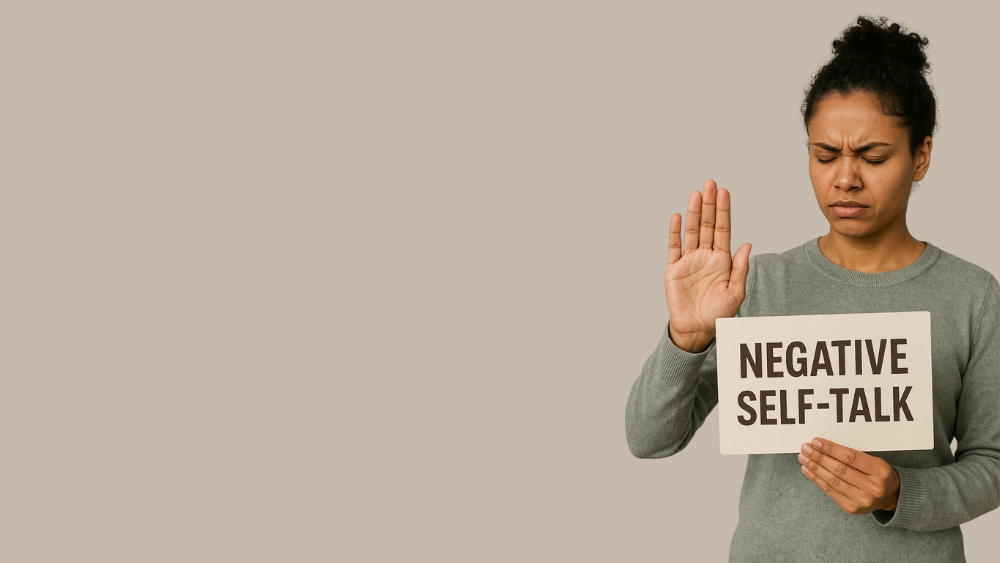You accidentally break something. Miss a meeting. Leave your house five minutes late.
And without thinking, the words spill out:
“I’m so stupid.”
“I’m such a mess.”
“Ugh, I’m useless.”
It seems harmless. A quick comment said out of frustration. But those small, automatic reactions carry more weight than we often realise.
When things go wrong, we’re quick to label ourselves rather than simply own the action.
Instead of saying,
- “I made a silly mistake,”
we say, - “I’m silly.”
Instead of, - “I forgot something important,”
we say, - “I’m forgetful,”
or worse, - “I’m a failure.”
It may seem like semantics, but the difference matters. One acknowledges a moment; the other defines your identity.
Psychological research has shown that the words we use to describe ourselves shape our beliefs and influence our behaviour. When we repeatedly label ourselves negatively – even casually – it can erode our self-esteem over time.
Studies have found that self-critical talk in response to minor setbacks (like forgetting your keys or missing a deadline) significantly correlates with increased anxiety and depressive symptoms.
On the flip side, studies in self-compassion have shown that when people respond to themselves with kindness and understanding after making mistakes, their performance, mood, and resilience improve dramatically.
Taking responsibility doesn’t mean beating yourself up. It means separating who you are from what you did.
Try this shift:
- Instead of: “I’m so disorganised.”
Say: “I didn’t plan that well today.” - Instead of: “I’m such a failure.”
Say: “I didn’t meet my goal this time, but I can try again.” - Instead of: “I’m hopeless.”
Say: “This situation was tough for me – and that’s okay.”
Your Words Create Your World
When we define ourselves by our missteps, we carry that shame into our day, our relationships, and our self-worth. But when we choose mindful language, we shift from judgment to growth. From shame to self-awareness.
So next time you slip up, forget something, or feel off your game, pause and notice how you speak to yourself.
Would you say that to a friend?
A Gentle Reminder
You are not your mistake.
You are not your worst moment.
You are human – learning, adjusting, growing.
Choose language that reflects your responsibility, not your identity.
Because you deserve kindness, even (and especially) when you’re not at your best.







